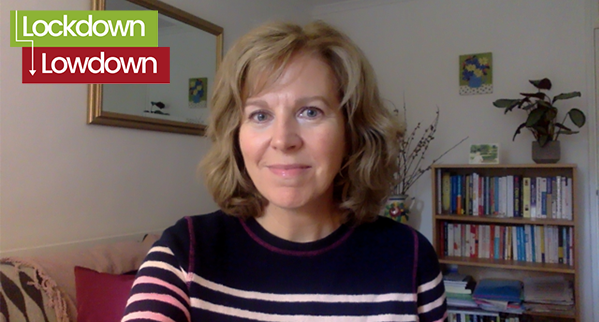Ann-Mari Freebairn is an executive coach and a career coach. She first worked with Louise in the late 90s when Louise freelanced for an agency Ann-Mari worked for. After that, Louise set up Amazon PR. Ann-Mari moved into charity communications, rising rapidly through the ranks and occasionally appointing us on PR campaigns. She’s a certified executive coach and licensed career coach and has been coaching professionally for three years.
Coaching from home
Louise: Although lockdown has been eased, the majority of office workers are still based at home. Presumably that is the case for most of your clients. Have you (and they) been able to adapt easily to working remotely rather than meeting face-to-face?
Ann-Mari: I consider myself quite fortunate as I was already conducting about 80% of my individual coaching sessions online when lockdown started. The remaining 20% were more than happy to move online. Since then, those who had a preference for working face-to-face have told me that they find coaching equally powerful online, so nobody seems to be in any hurry to go back to meeting face-to-face.
Personally, I’m a great believer in coaching online and find the connection is equally deep. Often people feel less inhibited than they would in a face-to-face session, which can be very helpful in a coaching context.
Several of our contacts are discovering the upsides to running events and holding meetings online. Some have told us that although something is lost, the advantages (greater reach, time saved not travelling, lower costs, reduced environmental impact) outweigh the disadvantages – and they plan to continue to deliver some of their work online, long-term. Do you feel the same, or are you desperate to get back to operating as we did before?
Because part of my offering is facilitation and workshop delivery, I’ve been taking a number of training courses to learn about delivering workshops online and one thing I’ve been surprised to discover is that the digital format is not a lesser version of the in-person workshop; it’s simply a different environment.
Of course, you can’t replicate online all of the wonderful advantages of in-person workshops, but there are many new opportunities and potentials in the digital sphere to be explored and capitalised on, on top of all the practical benefits you mentioned.
So for example, I was supposed to launch a year-long programme of coaching workshops for disadvantaged young women in April, and it had to be put on hold due to lockdown so I’m about to launch it in a digital format. I’m now actually excited about what we can do with the extended reach and the new opportunities and tools we have at our disposal.
I know that in your previous roles, you have navigated significant organisational change. I imagine you are guiding many people now through quite fundamental shifts, not all of which will be positive. What is your advice for people who are struggling to focus and to plan while so much is in flux?
Well of course, the natural reaction is to begin by focussing on all the problems which need to be fixed. But first, I believe it’s important to step back and take a bigger view. As the saying goes ‘A crisis is a terrible thing to waste’ so we also need to acknowledge the positive changes, the opportunities and the innovations, that this crisis has led to.
For example, a number of my clients have told me that some of the solutions which they had been calling for in their organisations prior to Covid – solutions which were considered too difficult, too expensive or too impractical – were suddenly implemented in a matter of weeks once the lockdown kicked in. Remote working is just one example of this.
“So my advice would be for people to ask themselves some of the questions my clients have been exploring in their coaching sessions: what are the positives that have come out of the last six months? What do we want to hold onto and build on? And, conversely, what isn’t working and isn’t fit for the new post-Covid world we’re preparing for?”
Some of the decisions that need to be made will be very painful. We’re already seeing huge casualties in the form of mass redundancies both in the commercial world and in the charity sector. So I’m not saying this is going to be easy. But it’s clear our world is changing, and organisations will need to adapt and change to play their part in the new post-Covid world.

